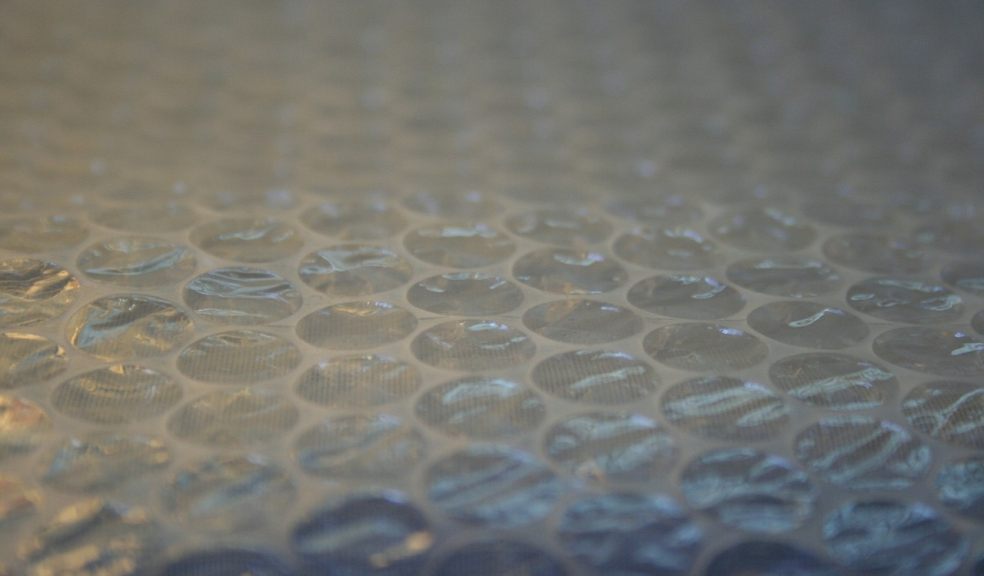
5 Things You Should Be Looking for in a Polythene Supplier
Are you looking for a polythene manufacturer but don't know where to start? You're not alone. Picking the right manufacturer can make or break your product's success. This guide will walk you through the key things to look for. We'll cover everything from product quality to pricing, helping you make a smart choice. Whether you're new to this or looking to switch suppliers, these tips will save you time and headaches.
1. Quality of Products
When you're searching for a polythene manufacture, product quality should be at the top of your list.
Make sure the manufacturer produces polythene with consistent thickness and strength.
Polystar Plastics produces polythene with consistent thickness and strength, ensuring that:
- Inconsistent thickness can lead to weak spots in your packaging
- It affects how much weight the polythene can holds
- Uneven thickness can cause problems in machines that use the polythene
Ask the manufacturer for their thickness tolerances and how they measure it.
The next thing you should check for is the durability and performance. Your polythene needs to last and do its job well. Consider:
- How long the polythene stays strong when exposed to sunlight or chemicals
- Whether it resists tearing and punctures
- If it maintains its shape under stress
Request test results or performance data for the specific type of polythene you need.
Also check if the manufacturer follows relevant industry standards. Having these results will make you sure that the polyethene meets minimum quality requirements, and you will be protected from any legal issues. So feel free to ask which standards they follow and if they have certification documents.
By focusing on these quality aspects, you'll avoid problems like packaging failures, product damage, or unhappy customers. Don't be shy about asking for samples to test yourself. A good manufacturer will be happy to prove their quality to you.
2. Production Capabilities
When you're looking at a polythene manufacturer, their production capabilities are key. You want to make sure they can handle your needs, both now and in the future.
First, think about the range of products they offer. A good manufacturer should be able to make different types of polythene items. This might include sheets, bags, films, or other forms you might need. It's helpful if they can make more than just one thing, even if you only need one type right now. Your needs might change later.
Next, consider how much they can produce. You don't want to partner with a manufacturer who can't keep up with your orders. Ask about their production capacity. Can they make enough for your current needs? What about if your business grows? It's good to have some room for growth.
Lastly, check if they can make custom products. Maybe you need a special size bag or a film with a unique thickness. A flexible manufacturer can adjust their processes to make what you need. This can be really important if you have specific requirements for your products.
Remember, it's okay to ask questions about these things. A good manufacturer will be happy to tell you about what they can do. They might even invite you to tour their facility. This can help you see firsthand what they're capable of producing. Don't be afraid to speak up and make sure they can meet your needs before you commit to working with them.
3. Manufacturing Processes
It's smart to take a peek at how they actually make their products. This can tell you a lot about the quality you can expect and how reliable they'll be.
Ask about their equipment. Modern machines can make better products faster and with fewer mistakes. If a manufacturer is using old, outdated equipment, it might mean they can't give you the best quality or keep up with big orders. You don't need to be an expert on machines, but it's okay to ask how new their equipment is and when they last updated it.
Next, think about quality control. You want to know they're checking their products to make sure everything's up to par. Ask them how they do this. Do they just look at the products, or do they use special tools to test them? How often do they check? The more thorough they are, the less likely you are to get bad products.
These days, a lot of people care about the environment. If that's important to you or your customers, ask about eco-friendly practices. Some manufacturers use recycled materials or have ways to use less energy. They might even have special certifications for being green.
A good manufacturer will be proud to explain their process. They might use terms you don't understand, so feel free to ask them to explain in simpler words. The more you know about how they work, the better you can decide if they're the right fit for you.
4. Experience and Reputation: Why They Matter
The experience and reputation of the polythene manufacturer can tell you a lot. It's like picking a restaurant — you'd probably prefer one that's been around for a while and has good reviews and awards.
Look at how long they've been in business. A company that's been making polythene for many years has likely figured out how to do it well. They've probably faced and solved lots of problems over time. This doesn't mean new companies are bad, but experience can be really valuable.
Next, check what other people say about them. Look for comments from their customers. These might be on the manufacturer's website, but also check other places online. Real stories from other businesses can give you a good idea of what it's like to work with them. Are the customers happy? Did the manufacturer fix problems quickly? This info can help you avoid headaches later.
Also, see if the manufacturer has won any awards or has special certifications. These can show that other experts think they do good work. But don't just trust the awards - find out what they mean and who gave them out.
Remember, a good reputation takes time to build. If a manufacturer has been around for years and lots of people say good things about them, that's a good sign. But also pay attention to recent feedback. A company that was great ten years ago might not be as good now.
Pricing and Terms
When you're looking at polythene manufacturers, pricing and terms are really important. They affect how much you'll spend and how easy it is to work with the manufacturer.
Look at the prices they offer. You want a good deal, but remember that the cheapest option isn't always the best. Very low prices might mean lower quality. Compare prices from different manufacturers for similar products. This helps you understand what's normal and what's too high or low.
Ask for clear, detailed quotes. A good manufacturer will explain exactly what you're paying for. They should list things like the type of polythene, the size, the quantity, and any extra services. If something in the quote isn't clear, ask them to explain it. You don't want surprise costs later.
Check their payment terms. This means how and when you need to pay. Some manufacturers might want all the money upfront. Others might let you pay part before and part after they deliver. Find out if they offer credit terms for regular customers. This can help with your cash flow if you order often.
Also, ask about their minimum order quantities. This is the smallest amount you can buy. If you only need a little, a high minimum order could be a problem. It might force you to buy more than you need.
Don't forget to ask about extra fees. There might be costs for delivery, rush orders, or special packaging. Knowing about these upfront helps you budget better.
Remember, it's okay to negotiate. If you like a manufacturer but their prices seem high, talk to them. They might offer better deals for long-term customers or large orders.

















